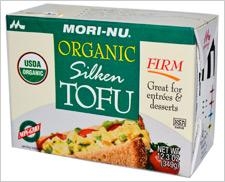food
Eco-Eating Trends Gain Momentum
- by Karlene Lukovitz @KLmarketdaily, August 30, 2013
 Environmentally conscious eating will have increasingly significant impacts on the retail food/beverage and restaurant industries in the years ahead, according to a new
report from market research publisher Packaged Facts and
strategic food consultancy CCD Innovation.
Environmentally conscious eating will have increasingly significant impacts on the retail food/beverage and restaurant industries in the years ahead, according to a new
report from market research publisher Packaged Facts and
strategic food consultancy CCD Innovation.
Consumers typically start eco-eating habits with organic dairy and produce, then move on to plant-based proteins, the researchers report. But today, many are going beyond those diet changes.
“Progressive diners and food shoppers are beginning to think about their eco-eating foot prints and are looking for sustainable choices in all sorts of new places,” says CCD Innovation CEO Kimberly Egan.
advertisement
advertisement
The report outlines trends that range from increasingly mainstream to ones that are admittedly rather far-out, including:
* Tofu's expansion: Consumers' interest in non-animal protein has fueled a growing trend for tofu. Tofu has long been a health-food staple, but is increasingly viewed as an authentic element of Asian cuisine, and a flavorful base for meals of all kinds.
* Meatless family meals: Campaigns like the one for Meatless Mondays have had a significant impact on household cooking habits, as well as foodservice institutions. Home cooks are turning to meatless casseroles, one-pot meals, stews, pastas and bean-based dishes to feed their families in healthful and sustainable ways.
* Grass-fed beef: Some restaurant chains are leading the industry by securing grass-fed beef supplies for tacos, burgers and sandwiches, showing other companies that where there's demand, a supply can rise to fulfill it. And with the costs of traditionally-raised beef having risen significantly, grass-fed beef costs have become more competitive.
* New sustainable seafood choices: Restaurants at all levels, and traditional as well as "fresh-format" grocery retailers, are working with seafood certification boards to obtain sustainably raised seafood that can yield healthy, tasty in- and out-of-home meals.
* Rooftop gardens: Rooftop gardens (and sometimes beehives) are being developed by fine-dining restaurants, hotel chains and progressive municipalities and grocery retailers, to create ultra-local food supplies and inspire seasonal menus.
* Edible packaging: Forward-leaning entrepreneurs are already offering edible wrappers for fruit, ice cream, yogurt and sandwiches, to help reduce the cost and impact of food packaging.
* Protein-packed insects: While not likely to become a U.S. packaged-goods staple anytime soon, high-protein insects are already an accepted part of many global cuisines, point out the researchers. And the efforts of creative cooks and global environmental organizations could spur some adoption within developed countries over time.




